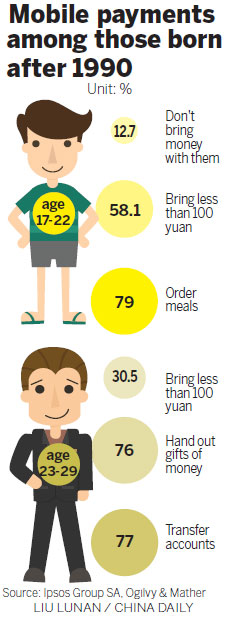VR payments get the nod from Alibaba
Company is developing virtual-reality platform that will allow consumers to shop in a 3-D world
Alibaba Group Holding Ltd says it is developing virtual-reality-enabled mobile payment technology - as the e-commerce giant bets big on VR-driven shopping for future growth and is wrestling with archrival Tencent Holdings Ltd for supremacy in the booming digital payment market.
The Hangzhou-based company confirmed to China Daily on Aug 8 that it is working on technology, that could allow users to pay bills in a 3-D virtual world by nodding their heads or making other gestures to log into payment accounts.
The revelation of its latest move comes shortly after the company offered a preview of its Buy+ virtual store. Wearing a headset and with two hand-controllers, consumers can get into a 360-degree virtual environment where they can hold, feel and try on bags, shoes and lingerie as they do in real life. Consumers won't - yet - be able to pay using VR.

"Consumers of Buy+ can shop in a virtual world, but they will still have to take their headsets off and go back to the real world to pay bills," according to Ant Financial, the financial affiliate of Alibaba.
"We are working on the VR-driven payment tool to offer a real immersive and complete VR shopping experience," added Ant Financial, which is the owner of Alipay, the most popular mobile payment tool in China.
The company declined to disclose when the new technology will be released, but media website Yicai quoted an Alibaba employee as saying that it could be launched as soon as the end of September.
In the first quarter of 2016, China's third-party mobile payment tools handled transactions worth more than 5.9 trillion yuan ($885.5 billion; 799 billion euros), up by 110 percent from a year earlier, data from internet consultancy Analysys International show.
Alibaba dominated the industry with a 63 percent market share while Tencent trailed, with its WeChat Payment accounting for 23 percent.
Experts say the difficulty of developing VR-enabled payment tools lies in how to ensure security while keeping it easy to use.
masi@chinadaily.com.cn
Cash folding among consumers
Chinese consumers are embracing cash-free lifestyles as an increasing number of people use digital mobile payment tools to order food, call taxis, buy clothing and pay utilities, a new report said.
The report, jointly released by French research firm Ipsos Group SA and the US public relations firm Ogilvy & Mather, showed that mobile payments tools are mostly popular among college students and young white-collar workers.
After interviewing more than 8,100 respondents, the report shows that more than 12 percent of college students say they don't carry cash with them when going out and 30 percent of interviewees aged between 23 and 29 take less than 100 yuan ($15; 13 euros).
While 78 percent of respondents said they have used mobile payment tools to shop online, the trend is also getting increasingly pronounced in brick-and-mortar clothing shops. About 40 percent of interviewees have paid offline bills with mobile payment tools.
Mobile payment tools are also becoming increasingly popular in the catering industry. About 71 percent of interviewees said they used mobile payment apps to order or pay restaurant bills at least once.


















